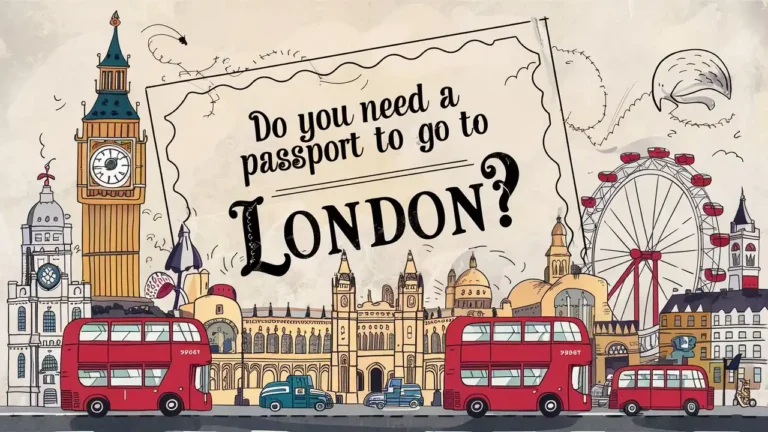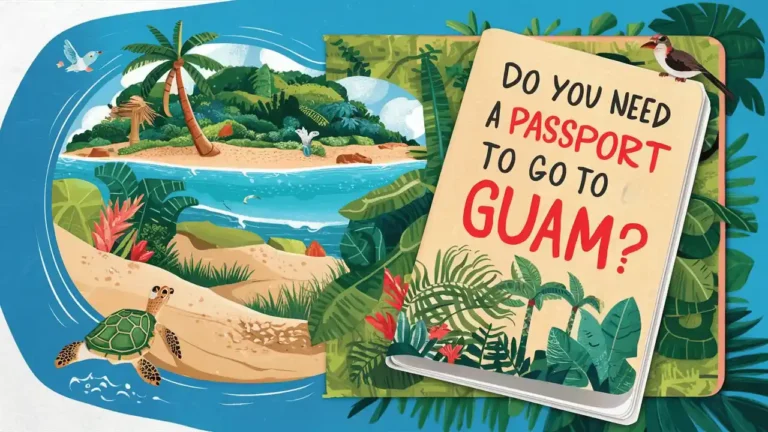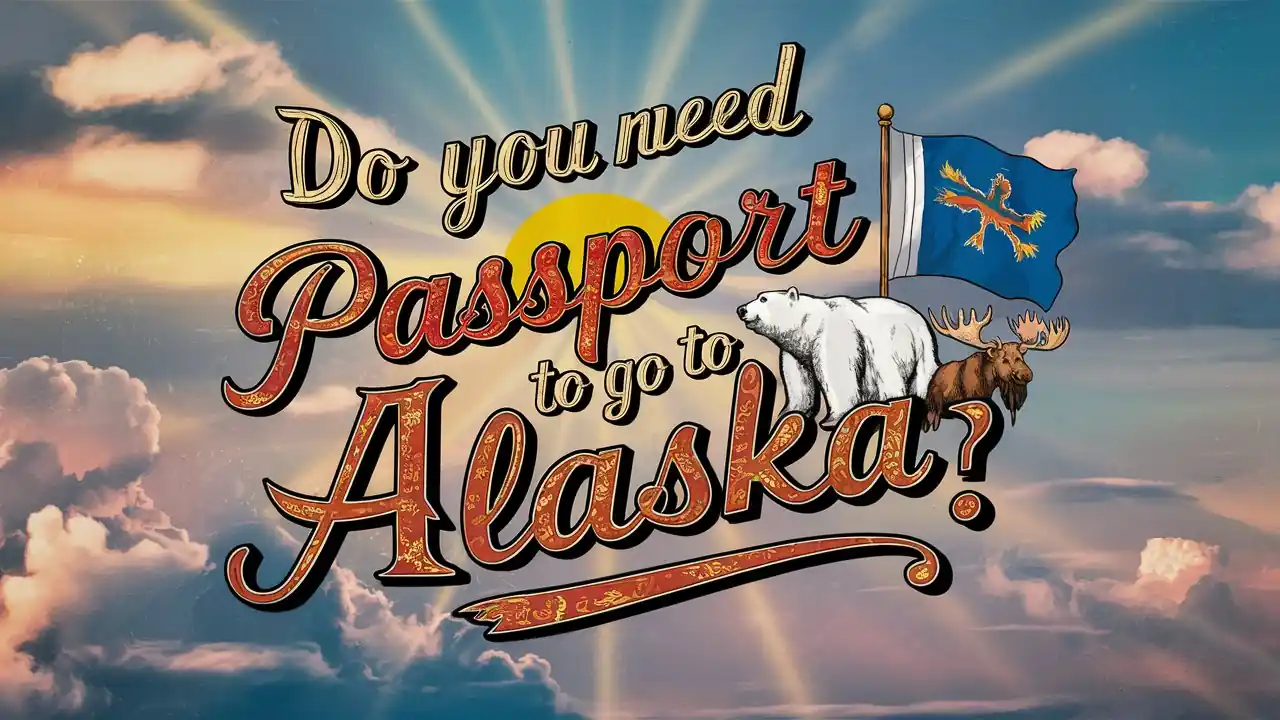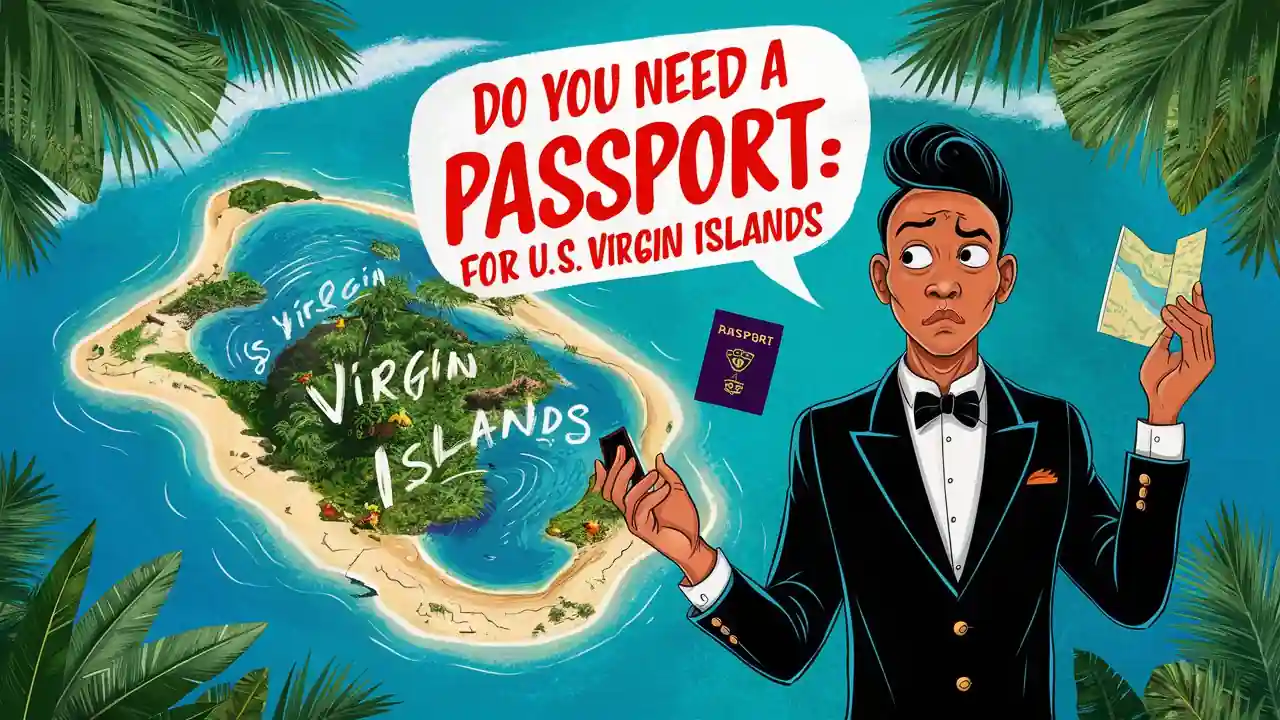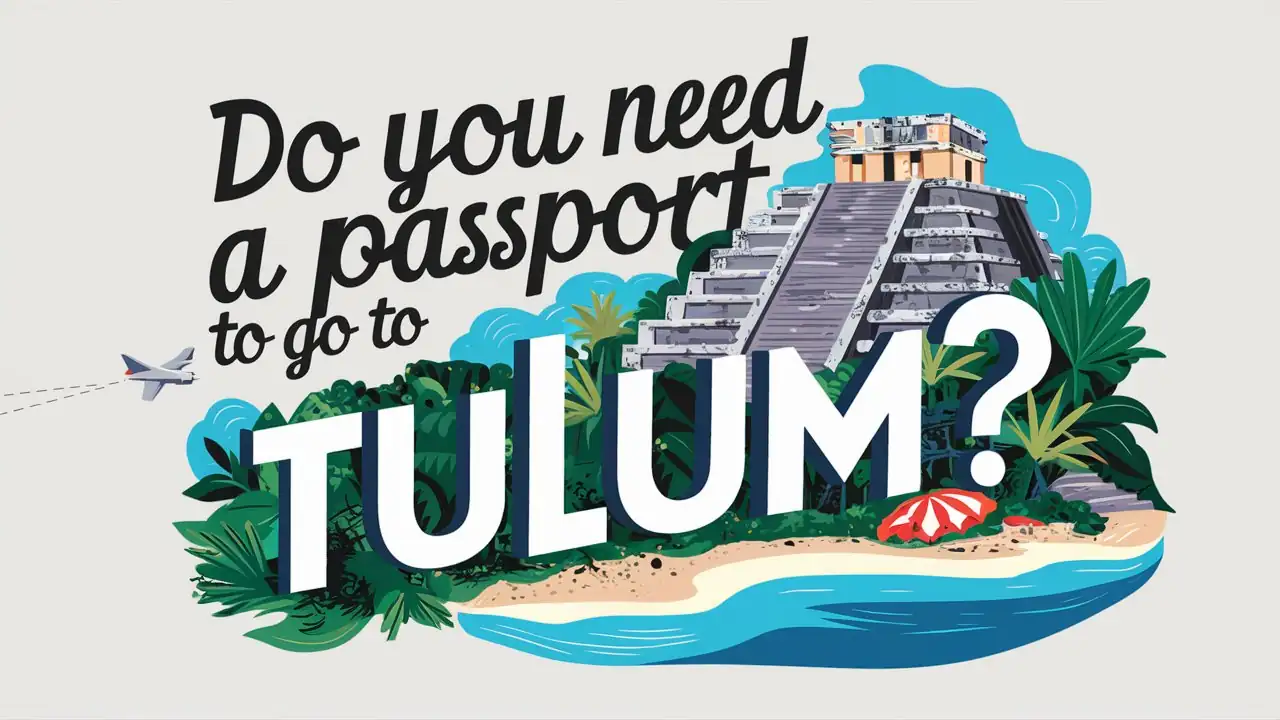Do You Need a Passport to go to Africa? (2024)
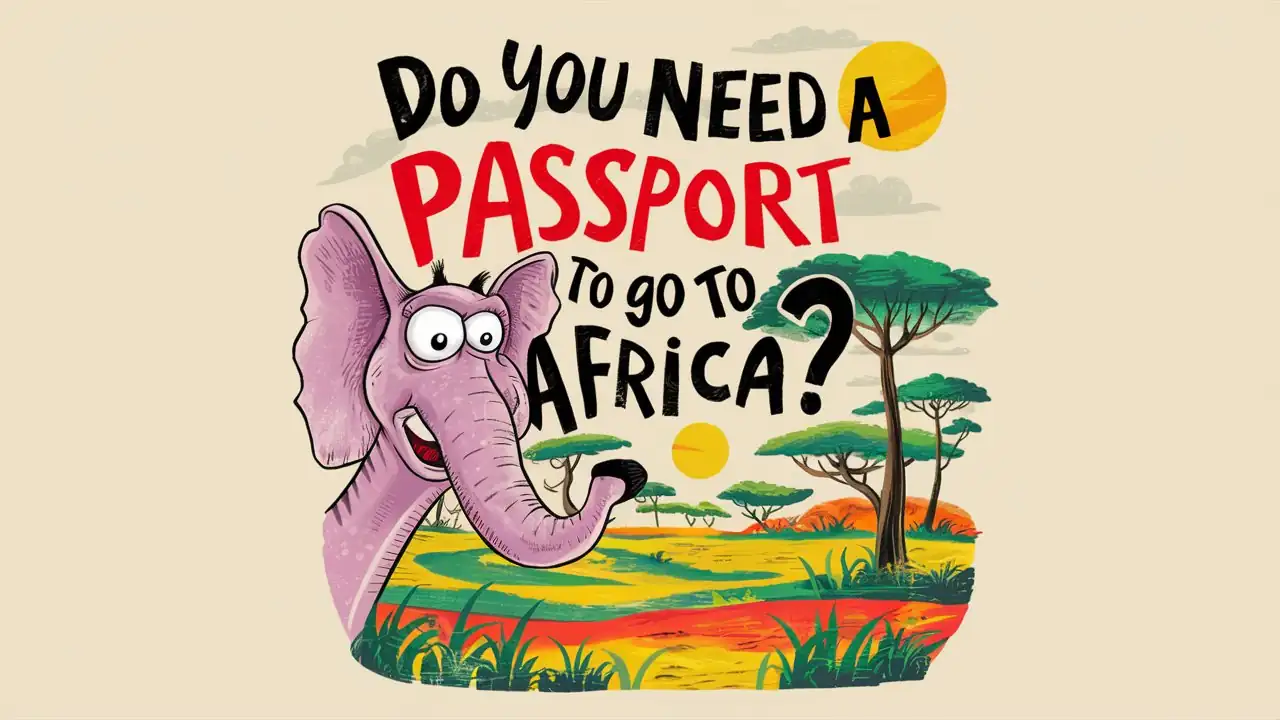
Introduction
Africa is a vast and diverse continent, comprising 54 sovereign countries, each with its own unique culture, geography, and entry requirements. Whether you’re planning a safari in Kenya, a beach vacation in Morocco, or a cultural exploration in Egypt, understanding the passport and visa requirements for traveling to Africa is crucial.
In general, most visitors to Africa will need a valid passport to enter the continent. The specific requirements may vary depending on your country of origin, the countries you plan to visit, and the purpose of your trip. It’s essential to research the entry requirements for each country you intend to visit and ensure that your passport is valid for the duration of your stay.
Let’s find out whether do you need a passport to go to Africa?
Do You Need Passport for Africa?
Traveling to Africa requires careful planning, and understanding passport requirements is crucial. Africa is a vast continent comprising 54 countries, each with its own entry requirements. However, for most international travelers, a valid passport is essential for entry into any African country. Here’s a comprehensive breakdown of passport requirements for different groups of travelers:
For U.S. Citizens
- A valid U.S. passport is required for entry into all African countries
- The passport must be valid for at least six months beyond the intended stay
- Some countries may require one or two blank pages in the passport for entry stamps
For Non-U.S. Citizens
- A valid passport from your country of citizenship is required
- Passport validity requirements vary by country but generally must be valid for at least six months beyond the intended stay
- Visa requirements differ depending on your nationality and the African country you’re visiting
Traveling by Land or Sea (For U.S. Citizens)
- A valid U.S. passport is required for all land and sea travel to African countries
- Additional documentation may be needed for crossing land borders or entering via seaports
Traveling by Land or Sea (For Non-U.S. Citizens)
- A valid passport is required for all land and sea travel to African countries
- Visa and entry requirements may vary depending on your nationality and the specific African country
Children Under 16
- All children, regardless of age, must have their own valid passport to enter African countries
- Some countries may have additional requirements for minors traveling alone or with only one parent
Closed-Loop Cruises
- Even for closed-loop cruises that begin and end at the same U.S. port, a valid passport is strongly recommended for travel to African countries
- Some cruise lines and African countries may require a passport regardless of the cruise type
Who Does Not Need a Passport for Africa?
- There are no exceptions to the passport requirement for foreign visitors entering African countries
- All international travelers, regardless of age or nationality, need a valid passport
For Locals
- Citizens of African countries traveling within their own country do not need a passport but may need other forms of identification
- For travel between African countries, citizens of African nations typically need a valid passport, though some regional agreements allow travel with national ID cards in certain cases
Remember, while these are general guidelines, passport and visa requirements can vary significantly between African countries. It’s essential to check the specific requirements for each country you plan to visit well in advance of your trip. Additionally, many African countries require visas in addition to a valid passport, so be sure to research and obtain any necessary visas before your journey.
Do You Need a Visa to go to Africa?
Africa, a vast continent comprising 54 countries, each with its own unique entry requirements, necessitates careful planning when it comes to visas. The visa requirements for traveling to Africa vary significantly depending on your nationality, the specific country you’re visiting, and the purpose and duration of your stay. This article provides an overview of visa requirements for various types of travelers heading to African countries.
For U.S. Citizens:
- Visa requirements for U.S. citizens vary by African country.
- Some countries, like Morocco and South Africa, allow U.S. citizens to enter visa-free for short stays.
- Many African nations require U.S. citizens to obtain a visa before travel or upon arrival.
- Always check the specific requirements for the country you plan to visit.
For Non-U.S. Citizens:
- Visa requirements differ widely based on nationality and destination country.
- Some African nations have visa-free or visa-on-arrival policies for certain nationalities.
- Many countries require visas to be obtained in advance from their embassies or consulates.
- Check with the embassy of the African country you plan to visit for precise requirements.
Visa Waiver Programs:
- Several African countries have visa waiver agreements with specific nations.
- For example, members of the East African Community often have visa-free travel within the region.
- The Economic Community of West African States (ECOWAS) allows visa-free travel for its citizens within member states.
Business and Work Visas:
- Most African countries require specific business or work visas for non-tourist activities.
- These often require sponsorship from a local company or organization.
- Application processes and requirements vary by country.
Student Visas:
- Students planning to study in African countries typically need to obtain student visas.
- Requirements usually include acceptance to a recognized educational institution in the country.
Transit Visas:
- Some countries require transit visas for travelers passing through their airports, even if not leaving the airport.
- Requirements vary, so check if you need a transit visa for any layovers.
Long-Term Stay Visas:
- For stays longer than typical tourist visits, most African countries require specific long-term visas.
- These may include work permits, retirement visas, or residence permits.
E-Visas and Visas on Arrival:
- Several African countries now offer e-visa services, allowing travelers to apply online before their trip.
- Some nations provide visas on arrival, but it’s crucial to confirm eligibility and requirements beforehand.
It’s important to note that visa policies in Africa can change frequently. Always check the most up-to-date information from official sources, such as the country’s embassy or consulate, before planning your trip. Additionally, even with a valid visa, travelers must meet other entry requirements, including having a passport valid for at least six months beyond the planned stay, proof of onward travel, and sometimes, proof of sufficient funds.
Why Visit Africa? Let Me Tell You!
Africa, a vast continent with diverse landscapes, rich cultures, and breathtaking wildlife, offers an unparalleled travel experience. Here’s why Africa should be at the top of your travel bucket list:
Incredible Wildlife Encounters
- Witness the Great Migration in the Serengeti and Masai Mara
- Spot the “Big Five” (lion, leopard, rhinoceros, elephant, and Cape buffalo) on safari
- Observe gorillas in their natural habitat in Uganda or Rwanda
- See unique species like lemurs in Madagascar or Ethiopian wolves in the Bale Mountains
Stunning Natural Landscapes
- Marvel at the majestic Victoria Falls between Zambia and Zimbabwe
- Explore the otherworldly Sahara Desert in Morocco or Tunisia
- Climb Mount Kilimanjaro, Africa’s highest peak, in Tanzania
- Discover the lush rainforests of the Congo Basin
Rich Cultural Heritage
- Experience the vibrant markets and medinas of Morocco
- Visit ancient Egyptian pyramids and temples along the Nile
- Explore the rock-hewn churches of Lalibela in Ethiopia
- Learn about Maasai culture in Kenya and Tanzania
Pristine Beaches
- Relax on the white sand beaches of Zanzibar, Tanzania
- Enjoy the turquoise waters of Diani Beach in Kenya
- Discover the secluded beaches of the Seychelles
- Experience the vibrant coastal life in Cape Town, South Africa
Adventure Activities
- Go white-water rafting on the Nile in Uganda
- Sandboard in the Namib Desert of Namibia
- Dive with great white sharks in South Africa
- Trek through the Atlas Mountains in Morocco
Diverse Cuisines
- Savor spicy tagines in Morocco
- Try injera and wat in Ethiopia
- Experience a traditional South African braai (barbecue)
- Taste fresh seafood along the coasts of West Africa
Historical Sites
- Visit the ancient city of Timbuktu in Mali
- Explore the ruins of Great Zimbabwe
- Discover the historic Stone Town in Zanzibar
- Tour the Apartheid Museum in Johannesburg, South Africa
Unique Accommodations
- Stay in luxury safari lodges overlooking watering holes
- Experience traditional Maasai villages in Kenya
- Sleep under the stars in desert camps in the Sahara
- Enjoy treehouse accommodations in South Africa’s national parks
Vibrant Cities
- Explore the bustling markets of Marrakech, Morocco
- Experience the cosmopolitan vibe of Cape Town, South Africa
- Discover the history and culture of Stone Town, Zanzibar
- Enjoy the nightlife and music scene of Dakar, Senegal
Conservation Efforts
- Participate in wildlife conservation projects
- Visit endangered species rehabilitation centers
- Learn about anti-poaching efforts and sustainable tourism initiatives
- Support local communities through responsible travel
Africa offers an incredible array of experiences, from thrilling wildlife encounters to immersive cultural experiences and breathtaking natural wonders. Its diversity, warmth of its people, and the opportunity to witness some of the world’s most spectacular landscapes and wildlife make Africa a truly unforgettable destination. Whether you’re seeking adventure, relaxation, or cultural enrichment, Africa has something to offer every traveler, promising memories that will last a lifetime.
Planning Your Africa Adventure
When planning a trip to Africa, it’s important to remember that Africa is a vast continent with 54 diverse countries, each with its own unique culture, landscapes, and attractions. Here’s a guide to help you plan your African adventure:
When to Visit
- Consider the specific country or region you’re visiting, as climate varies greatly across the continent
- Generally, dry seasons (varying by region) offer better wildlife viewing opportunities
- Peak tourist seasons often align with dry seasons, so expect higher prices and more crowds
- Shoulder seasons can offer a good balance of weather and lower tourist numbers
Where to Stay
- Options range from luxury safari lodges to budget-friendly hostels
- Consider eco-lodges for a sustainable travel experience
- Many cities offer international hotel chains for familiar comforts
- Local guesthouses can provide an authentic cultural experience
Getting There
- Major international airports include Johannesburg (South Africa), Nairobi (Kenya), and Cairo (Egypt)
- Research visa requirements well in advance, as they vary by country
- Consider multi-country passes if visiting several nations
Getting Around
- Domestic flights are often the most efficient way to cover large distances
- Overland travel can be an adventure, but be prepared for long journeys
- Some countries offer reliable train services
- Car rentals are available in many countries, but check local driving laws and road conditions
What to Do
- Go on a safari in renowned parks like Serengeti (Tanzania) or Kruger (South Africa)
- Explore ancient wonders like the Pyramids of Giza (Egypt) or the rock-hewn churches of Lalibela (Ethiopia)
- Experience vibrant city life in Cape Town, Nairobi, or Marrakech
- Relax on beautiful beaches in Zanzibar, Seychelles, or Mauritius
- Trek through diverse landscapes, from the Sahara Desert to Mount Kilimanjaro
Where to Eat and Drink
- Try local dishes unique to each country or region
- Be cautious with street food and always drink bottled water
- Many cities offer a range of international cuisines
- Experience traditional tea ceremonies or coffee rituals
What to Pack
- Lightweight, breathable clothing
- Sun protection (hat, sunglasses, high SPF sunscreen)
- Insect repellent and any necessary medications
- Appropriate attire for safaris or cultural sites
- Power adapters (plug types vary by country)
Additional Tips
- Research local customs and dress codes to respect cultural norms
- Check required vaccinations and health precautions for each country you’ll visit
- Consider travel insurance that covers medical evacuation
- Be aware of safety guidelines, especially in urban areas or remote regions
- Learn a few basic phrases in the local language(s) of the countries you’re visiting
Remember, Africa is incredibly diverse, so tailor your planning to the specific countries and experiences you’re interested in. With proper preparation, your African adventure can be a truly unforgettable journey.
Best Things to Do in Africa – Get Ready for an Adventure!
Africa, a vast continent with diverse landscapes, rich cultures, and incredible wildlife, offers a myriad of unforgettable experiences. Here’s a list of must-do activities to make your African adventure truly remarkable:
🦁 Wildlife Safaris
- Witness the Great Migration in Kenya’s Masai Mara or Tanzania’s Serengeti
- Spot the Big Five in South Africa’s Kruger National Park
- Track mountain gorillas in Uganda’s Bwindi Impenetrable Forest
- Observe chimpanzees in Tanzania’s Gombe Stream National Park
🏞️ Natural Wonders
- Marvel at the majestic Victoria Falls between Zambia and Zimbabwe
- Climb Mount Kilimanjaro, Africa’s highest peak, in Tanzania
- Explore the otherworldly landscapes of Namibia’s Sossusvlei
- Discover the lush Okavango Delta in Botswana
🏖️ Beach Paradises
- Relax on the pristine beaches of Zanzibar, Tanzania
- Enjoy water sports in Mauritius
- Explore the coral reefs of Egypt’s Red Sea coast
- Surf the waves in Jeffrey’s Bay, South Africa
🏛️ Historical Treasures
- Visit the ancient pyramids and Sphinx in Giza, Egypt
- Explore the rock-hewn churches of Lalibela, Ethiopia
- Discover the ruins of Great Zimbabwe
- Tour the slave forts along Ghana’s coast
🌍 Cultural Experiences
- Meet the Maasai people in Kenya or Tanzania
- Visit a Berber village in Morocco’s Atlas Mountains
- Experience the vibrant markets of Marrakech, Morocco
- Attend the Timkat Festival in Ethiopia
🍽️ Culinary Adventures
- Savor a traditional Braai (barbecue) in South Africa
- Try tagine and couscous in Morocco
- Enjoy Ethiopian injera and wat
- Taste West African jollof rice
🌳 Eco-Adventures
- Trek through the Virunga Mountains in Rwanda
- Canoe down the Zambezi River
- Hike the Atlas Mountains in Morocco
- Explore the Ngorongoro Crater in Tanzania
🏙️ Urban Experiences
- Discover the vibrant art scene in Cape Town, South Africa
- Explore the bustling markets of Lagos, Nigeria
- Visit the museums and galleries of Nairobi, Kenya
- Experience the nightlife of Accra, Ghana
🎭 Festivals and Events
- Attend the Fez Festival of World Sacred Music in Morocco
- Experience the colorful Gerewol Festival in Chad
- Join in the Lake of Stars Music Festival in Malawi
- Witness the Timkat celebrations in Ethiopia
🐘 Conservation Experiences
- Volunteer at an elephant sanctuary in Kenya
- Participate in rhino conservation efforts in South Africa
- Join a marine conservation project in Mozambique
- Contribute to community development projects across the continent
Whether you’re a wildlife enthusiast, adventure seeker, history buff, or culture lover, Africa offers an incredible array of experiences. From the iconic savannas teeming with wildlife to the vibrant cities pulsing with energy, Africa promises an adventure that will leave you with unforgettable memories and a desire to return.
Currency, Language, Timezone, and Other Important Information
Before planning your trip to Africa, it’s essential to understand some key information about the continent. Here’s a comprehensive guide to help you prepare for your African adventure:
Currency
Africa has numerous currencies, varying by country. Some popular ones include:
- South African Rand (ZAR)
- Egyptian Pound (EGP)
- Moroccan Dirham (MAD)
- Kenyan Shilling (KES)
- Nigerian Naira (NGN) Always check the specific currency for your destination country and consider carrying some cash in addition to credit cards.
Language
Africa is home to over 2000 languages. Common languages include:
- English (widely spoken in many countries)
- French (official in many West and Central African countries)
- Arabic (dominant in North Africa)
- Swahili (East Africa)
- Portuguese (Angola, Mozambique) Many countries have their own local languages as well.
Timezone
Africa spans multiple time zones:
- West Africa Time (WAT): UTC+1
- Central Africa Time (CAT): UTC+2
- East Africa Time (EAT): UTC+3 Some countries observe Daylight Saving Time, so check the specific time zone for your destination.
Climate and Weather
Africa’s climate varies greatly:
- North Africa: Mediterranean climate with hot summers and mild winters
- Sub-Saharan Africa: Tropical climate with wet and dry seasons
- Southern Africa: Temperate climate with distinct seasons Always check the weather for your specific destination and time of travel.
Entry Requirements
Requirements vary by country, but generally include:
- Valid passport (usually with at least 6 months validity beyond your stay)
- Visa (requirements differ by country and nationality)
- Proof of onward travel
- Sufficient funds for your stay
Additional Documents
Depending on your destination, you may need:
- Yellow fever vaccination certificate
- Travel insurance
- Proof of accommodation
- Return ticket
COVID-19 Considerations
- Check the latest travel advisories and entry requirements for your specific destination
- Vaccination or testing requirements may apply
- Health screening upon arrival is common
- Follow local guidelines for masks and social distancing
Will My Phone Work in Africa?
- Most international phones will work in Africa’s urban areas
- Check with your provider about international roaming charges
- Consider purchasing a local SIM card for cheaper rates
- Wi-Fi is available in many hotels and urban areas, but may be limited in rural regions
Electricity
- Voltage and plug types vary by country
- Common voltages: 220-240V
- Bring a universal adapter and voltage converter if needed
Tipping
- Customs vary by country and service
- Generally appreciated in tourist areas
- Research local customs for your specific destination
Transportation
- Varies widely by country and region
- Options may include buses, trains, domestic flights, and car rentals
- Uber and similar services available in some major cities
Drinking Age
- Varies by country, typically 18-21 years old
- Some countries prohibit alcohol consumption
Safety
- Varies greatly by country and region
- Take general travel precautions
- Research specific safety concerns for your destination
Local Customs
- Highly diverse across the continent
- Respect local dress codes and cultural norms
- Learn basic etiquette for your specific destination
Opening Hours
- Vary by country and type of establishment
- Many businesses close for midday breaks in hotter regions
- Some countries observe different weekends (e.g., Friday-Saturday)
Health and Safety
- Consult a travel doctor for required and recommended vaccinations
- Take precautions against mosquito-borne diseases
- Drink bottled or purified water in many areas
Remember to research your specific destination country for the most accurate and up-to-date information, as requirements and conditions can vary significantly across the continent.
Volunteering in Africa – The Best Way to Truly Experience
Volunteering in Africa offers a unique opportunity to immerse yourself in diverse cultures, contribute to meaningful projects, and create lasting memories. By dedicating your time and skills to local organizations, you’ll gain a deeper understanding of African communities, environments, and heritage while making a positive impact.
Why Volunteer in Africa?
- Cultural immersion: Work alongside locals and experience diverse African cultures firsthand.
- Environmental conservation: Contribute to preserving Africa’s unique ecosystems and wildlife.
- Skill development: Gain new skills and experiences that can benefit your personal and professional life.
- Community connection: Build relationships with locals and fellow volunteers from around the world.
- Sustainable tourism: Support responsible travel by giving back to the communities you’re visiting.
Top 6 Volunteering Opportunities in Africa
- African Impact
- Focus: Various projects across multiple African countries
- Activities: Wildlife conservation, community development, education, and healthcare
- Website: https://www.africanimpact.com/
- Volunteer World
- Focus: Connecting volunteers with diverse projects across Africa
- Activities: Wildlife conservation, teaching, community development, and more
- Website: https://www.volunteerworld.com/en/volunteer-abroad/africa
- GoEco
- Focus: Eco-friendly and community-based volunteer projects
- Activities: Wildlife rehabilitation, marine conservation, teaching, and community support
- Website: https://www.goeco.org/area/volunteer-in-africa
- Projects Abroad
- Focus: Structured volunteer and internship programs
- Activities: Childcare, teaching, medical internships, and conservation projects
- Website: https://www.projects-abroad.org/volunteer-destinations/volunteer-in-africa/
- Love Volunteers
- Focus: Affordable volunteer programs across Africa
- Activities: Healthcare, education, women’s empowerment, and community development
- Website: https://www.lovevolunteers.org/
- Naturally Africa Volunteers
- Focus: Sustainable development projects in rural African communities
- Activities: Healthcare, education, sports coaching, and wildlife conservation
- Website: https://www.volunteerafrica.com/
How to Get Started
- Research: Explore the organizations listed above and find one that aligns with your interests and skills.
- Contact: Reach out to the organization directly to inquire about current volunteer opportunities and requirements.
- Plan: Determine the length of your stay and any necessary travel arrangements.
- Prepare: Familiarize yourself with the specific African country’s culture, climate, and any requirements for your chosen volunteer program.
Important Considerations
- Visa requirements: Check if you need a special visa for volunteering activities in the specific African country.
- Time commitment: Some organizations may require a minimum time commitment.
- Costs: While volunteering is unpaid, some programs may charge fees for accommodation, training, or project support.
- Health and safety: Ensure you have appropriate travel insurance and any necessary vaccinations.
By volunteering in Africa, you’ll not only enrich your travel experience but also contribute to sustainable development and community well-being across the continent. It’s an opportunity to create meaningful connections, gain new perspectives, and leave a positive impact on the diverse and beautiful landscapes of Africa.
Conclusion
In conclusion, traveling to Africa requires careful planning and preparation, with passport requirements being a crucial aspect of this process. As we’ve explored throughout this article, a valid passport is absolutely essential for any international traveler visiting African countries. Regardless of which African nation you plan to visit, having a passport with at least six months of validity beyond your planned return date is a standard requirement. This not only ensures your entry into the country but also provides a buffer for unexpected changes in your travel plans.
Moreover, while a passport is the primary document needed, it’s important to remember that visa requirements vary significantly among African countries. Some nations offer visa-on-arrival or e-visa options, while others require visas to be obtained in advance. Additionally, factors such as the purpose of your visit, length of stay, and your nationality can influence specific entry requirements. Therefore, it’s crucial to research the particular requirements for your destination country well in advance of your trip.
By ensuring you have all the necessary documentation, including a valid passport and appropriate visas, you can focus on enjoying the rich cultural experiences, breathtaking landscapes, and unforgettable adventures that Africa has to offer.
People Also Ask (FAQs)
Q: Can I travel to Africa without a passport?
A: No, you cannot travel to Africa without a passport. A valid passport is a mandatory requirement for international travel to any African country, regardless of your nationality or the specific African nation you’re visiting.
Q: How long does my passport need to be valid to travel to Africa?
A: Most African countries require that your passport be valid for at least six months beyond your planned return date. Some countries may have different requirements, so it’s best to check the specific regulations for your destination country.
Q: Do I need a visa in addition to my passport to visit Africa?
A: Visa requirements vary by country. Some African nations offer visa-on-arrival or e-visa options, while others require visas to be obtained in advance. Check the visa requirements for your specific destination well before your trip.
Q: Can I use a passport card instead of a passport book to travel to Africa?
A: No, a passport card is not valid for international air travel to Africa. You must have a valid passport book for entry into African countries.
Q: Are there any African countries that U.S. citizens can visit without a passport?
A: No, there are no African countries that U.S. citizens can visit without a passport. A valid passport is required for all international travel to Africa, regardless of your citizenship.
Q: How far in advance should I apply for a passport before traveling to Africa?
A: It’s recommended to apply for or renew your passport at least 4-6 months before your planned trip to Africa. This allows ample time for processing and ensures you have your passport well in advance of your travel date.


